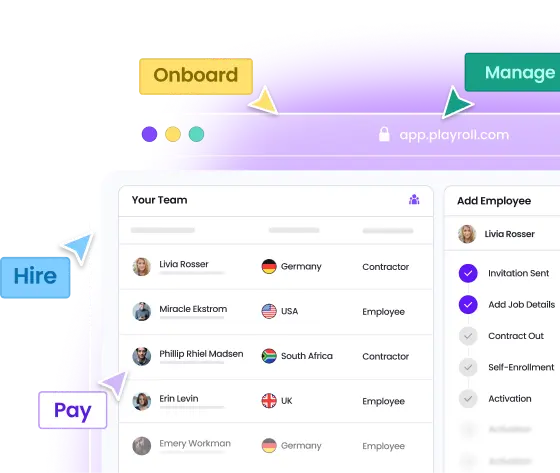What Are the Standard Working Hours in Ireland?
In Ireland, the standard full-time workweek is typically 39 hours, usually spread across five days, Monday to Friday. Employees generally work from 9:00 AM to 5:30 PM, with a 30-minute to 1-hour lunch break.
Maximum Working Hours in Ireland
Under the Organisation of Working Time Act 1997, the maximum average working week is 48 hours, calculated over a four-month period.
- Daily Limit: Employees should not work more than 13 hours in a 24-hour period.
- Weekly Limit: The average working week should not exceed 48 hours over four months.
- Overtime: While there's no statutory requirement for overtime pay, many employers offer additional compensation.
Industry-Specific Exceptions
Certain industries have specific regulations:
- Healthcare, Security, and Transport: These sectors may have extended reference periods (up to 6 or 12 months) for calculating average working hours due to operational needs.
Managerial and Exempt Employees
Managers or employees with significant decision-making authority may be exempt from standard working hour regulations. Their contracts should clearly outline their working hours and any applicable exceptions.
Statutory Full-Time Working Hours in Ireland
A full-time workweek in Ireland is legally defined as 39 hours. This standard applies across most industries and roles, ensuring consistency and fairness in employment practices.
Overtime Regulations in Ireland
Overtime regulations in Ireland are designed to balance operational needs with employee well-being.
What Counts As Overtime in Ireland?
Overtime refers to any hours worked beyond the standard 39-hour workweek. While not legally mandated, many employers compensate overtime hours, especially if specified in contracts or collective agreements.
Maximum Overtime in Ireland
Employees cannot exceed an average of 48 working hours per week over a four-month period, including overtime.
Overtime Payout Rates in Ireland
There's no statutory requirement for overtime pay rates. However, many employers offer:
- Time and a Half: 1.5 times the regular hourly rate.
- Double Time: 2 times the regular hourly rate, especially for work on Sundays or public holidays.
These rates can vary based on industry, contract terms, and collective agreements.
Rest Periods and Breaks in Ireland
Employees are entitled to:
- Daily Rest: A minimum of 11 consecutive hours in any 24-hour period.
- Weekly Rest: At least 24 consecutive hours in each seven-day period, following a daily rest period.
Breaks:
- A 15-minute break if working more than 4.5 hours.
- A 30-minute break if working more than 6 hours, which can include the first break.
Employers are responsible for ensuring these entitlements are met.
Night Shifts and Weekend Regulations
Night Work: Defined as work between midnight and 7:00 AM. Night workers should not work more than an average of 8 hours in a 24-hour period, averaged over a two-month period.
Weekend Work: While not prohibited, employees should receive adequate rest periods. Employers should ensure that weekend work complies with daily and weekly rest requirements.
Disclaimer
THIS CONTENT IS FOR INFORMATIONAL PURPOSES ONLY AND DOES NOT CONSTITUTE LEGAL OR TAX ADVICE. You should always consult with and rely on your own legal and/or tax advisor(s). Playroll does not provide legal or tax advice. The information is general and not tailored to a specific company or workforce and does not reflect Playroll’s product delivery in any given jurisdiction. Playroll makes no representations or warranties concerning the accuracy, completeness, or timeliness of this information and shall have no liability arising out of or in connection with it, including any loss caused by use of, or reliance on, the information.
.svg)
.svg)
.svg)





.svg)



.png)












.webp)









.svg)